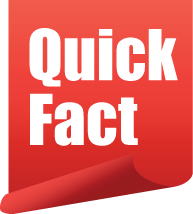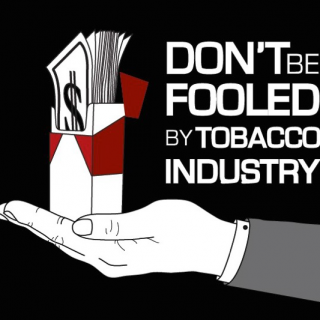Protecting Future Generations from Nicotine Addiction
Youth smokers, particularly in low- and middle-income countries, are a huge potential market for industry's future growth. Tobacco companies target children and youths, whom they refer to as “replacement smokers” to replace older smokers who either quit or die from tobacco-related diseases. Youth smoking therefore remains the front line of the tobacco epidemic, as youths are more susceptible to tobacco marketing, and nicotine addiction is more entrenched in the developing adolescent brain. On average, most smokers start smoking before the age of 20.
The tobacco industry keeps inventing new ways to sell harm through novel marketing schemes, attractive and colourful packaging, new flavors, and new products to appeal to the young and first-time smokers. In ASEAN, menthol and flavoured cigarettes are unregulated and widely available. Single stick cigarette sales, which increase accessibility to cigarettes, are banned in all but available in three ASEAN countries (Indonesia, Philippines and Vietnam), while the sale of kiddie packs (containing less than 20-sticks) is still allowed in Indonesia and Philippines.
The emergence and rapid market growth of a new and wider range of alternative nicotine products such as electronic nicotine delivery systems (ENDS, which include e-cigarettes and are available in myriads of flavours) and heated tobacco products (HTPs) are a new challenge for preventing nicotine addiction and other health harms. Such gadgets, with their sleek designs and flashy marketing easily appeal to youths and increase the risk for transitioning to conventional cigarettes, and some countries have already seen a significant rise in teen use.
Globally, there are 111 countries have either banned or restricted the sale of ENDS. Thirty two of these countries (covering 2.4 billion people) ban the sale of ENDS, and the other 79 countries have adopted one or more legislative measures to regulate ENDS, covering 3.2 billion people. In ASEAN, five countries (Brunei, Cambodia, Lao PDR, Singapore, and Thailand) already ban ENDS and HTPs.
Transnational tobacco companies also produce ENDS and HTPs and promote these as being less harmful than conventional cigarettes and as smoking cessation devices. Noting that there are no long-term studies on the safety of these devices and insufficient evidence on their benefit as tools for smoking cessation, the WHO and some national health authorities, such as the Australian National Health and Medical Research Council (NHMRC) and the US National Academies of Sciences, Engineering, and Medicine (NAS), have recommended a precautionary approach and action to minimize harm to users and bystanders and to protect vulnerable groups such as young people, until clear evidence of safety, quality and efficacy are produced. For HTPs, the WHO recommends that these be regulated similarly to other tobacco products.
This chapter also highlights initiatives to protect present and future generations from nicotine addiction and tobacco harms.
Source of cigarettes for youth
Percentage of youth who purchased cigarettes from a store/shop/street vendor/kiosk, they were not refused purchase because of their age and bought individual sticks*

Source of ENDS for youth
Percentage of youth who purchased ENDS from a shop/kiosk/shopping mall, they were not refused purchase because of their age and obtained from friends/someone else

Percentage of total youth smokers* and ENDS users in ASEAN

** The data is based on currently use any tobacco product anytime during the past 30 days.
*** Indonesian youth aged 10-18 years old
****The data is based on youth aged between 13 and 17. ***** Youth smoking prevalence (4%) is a consolidated figure from three different surveys among youth aged 13-20 between 2014 and 2016.
Targeting youths, young adults and women
Menthol and fruit-flavored cigarettes sold in ASEAN
 Vietnam
Vietnam Indonesia
Indonesia Philippines
Philippines Myanmar
MyanmarNo Ban
- Cambodia
- Brunei
- Indonesia
- Lao PDR
- Malaysia
- Myanmar
- Philippines
- Singapore
- Thailand*
- Vietnam*
*Menthol flavor only.

Countries that have banned kiddie packs (less than 20 sticks per pack) in ASEAN

| Country | Year |
|---|---|
| Brunei | 2005 |
| Lao PDR | 2009 |
| Myanmar | 2006 |
| Thailand | 2017 |
| Cambodia | 2015 |
| Malaysia | 2010 |
| Singapore | 2002 |
| Vietnam | 2016 |

| Country | Year |
|---|---|
| Indonesia | No Ban |
| Philippines | No Ban |

Indonesia
A Mild, the most popular local brand sold in 12 and 16 sticks per pack.
Philippines
Marlboro, the most popular foreign brand sold in 10 sticks per pack.Minimum age for tobacco use - 21 years old

Minimum legal age for the purchase, possession and use of tobacco in ASEAN - 18 years and above
Clear indicator inside POS about the prohibition of tobacco sales to minors

- Brunei
- Malaysia
- Philippines
- Vietnam
- Indonesia
- Myanmar
- Singapore

- Cambodia
- Thailand
- Lao PDR

Sellers request for evidence (reached full legal age) before sale

- Brunei
- Singapore
- Philippines
- Thailand

- Cambodia
- Lao PDR
- Myanmar
- Indonesia
- Malaysia
- Vietnam


Global status of ENDS ban

 Singapore: Ban emerging tobacco products
Singapore: Ban emerging tobacco products
Smokeless cigars, smokeless cigarillos and smokeless cigarettes; dissolvable tobacco or nicotine; any product containing nicotine or tobacco that may be used topically for application, by implant or injection into any parts of the body; and any solution or substance of which tobacco or nicotine is a constituent that is intended to be used with an electronic nicotine delivery system (ENDS) or a vaporizer (e-cigarettes); nasal snuff, oral snu gutkha, khaini and zarda.

Status ban of Electronic Smoking Device (ESD) in ASEAN

Tobacco-free generations: Philippines, Singapore, and Thailand
 Philippines: Balanga - World's First Tobacco Free Generation City
Philippines: Balanga - World's First Tobacco Free Generation City
The tobacco-free generation concept prohibits the sale of any tobacco products including electronic nicotine delivery systems (ENDS) and other similar products to any citizen born on or after 01 January 2000 in the City of Balanga. This was enforced through the enactment of Tobacco Free Generation End-Game Strategy Ordinance of Balanga City, Bataan in 2016.
On 21 July 2017, the PTI filed a Petition for Prohibition against Balanga City on the grounds of pre-emption, alleging prohibitions delineated in the CNSO supersede and therefore violate national regulations established by the Tobacco Regulation Act of 2003. Currently, the lower courts have ruled in favour of the PTI. Balanga City is contemplating exploring legal remedies to defend its local autonomy to develop public health policies promoting general welfare.”
Balanga City also passed new legislation - New Comprehensive Tobacco and Nicotine Regulation for the Protection of Health And Welfare Ordinance.

 Singapore: Tobacco-free Generation 2000 (TFG 2000)
Singapore: Tobacco-free Generation 2000 (TFG 2000)
Singapore is the first country to call for a ban on sale of tobacco products to those born after 2000, initiated by the civil society. It referred to as the millennium generation (TFG2000), to protect the next generation from tobacco.

 Thailand: Gen Z Strong (2017 - 2021)
Thailand: Gen Z Strong (2017 - 2021)
Thailand launched Gen Z Strong: No Smoking program targeting at those born between 1995 and 2009 or aged between 7 and 20 years in 2016 to be a smoke-free generation. Social media and digital media are utilitised convince the target youths not to start smoking and to actively participate in advocacy campaigns.
The project has expanded to engage more youth leaders and organizations. In 2017, about 100 youth leaders (from seven youth groups) and 9 leading organizations were engaged to support, promote and share the Gen Z project with their network through a series of workshops and trainings for 4,000 youths across the country. The youth groups continued to support the pilot projects in selected ten provinces, including Phuket, Krabi, Khonkhen, Srisaket, Ubonratchathani, Nakhonratchasima, Pitsanulok, Chiangmai, Petchaboon, and Maehongson.
In 2019, a new initiative 'MPOWER GEN Z' was designed to build and strengthen the capacity of youth groups in different areas including media (writing news, creative video clip) and tobacco industry monitoring and surveillance through a 'Gen Z Academy Programs'. Four Gen Z Academy workshops were held with a participation of 356 young leaders across ten provinces between 2019 and 2021.
At present, the Gen Z project has reached out to more than 10,000 Thai youths. Key activities implemented to support the Gen Z project includes:
- Seed grants for youth-related organizations including school and media (10 projects in 12 provinces across the country)
- Development of website for Gen Z Academy (from Zero to Hero)
- Engagement in social media platforms (Facebook/ Twitter/ Instagram/ YouTube/ Tik Tok/ LINE):
- To establish a communication and dissemination channel reaching out and connecting with Gen Z network at all times.
- To disseminate information on tobacco control besides encouraging Gen Z youth in the network to participate in the creative activities.
- To connect and link information to other social media channels in a quick and effective manner.
- Connecting with net idol and influencer as motivation and inspiration for youths to engage in the Gen Z activities.
- Developing and supporting the production of new materials (T-shirt/pen/face mask)

